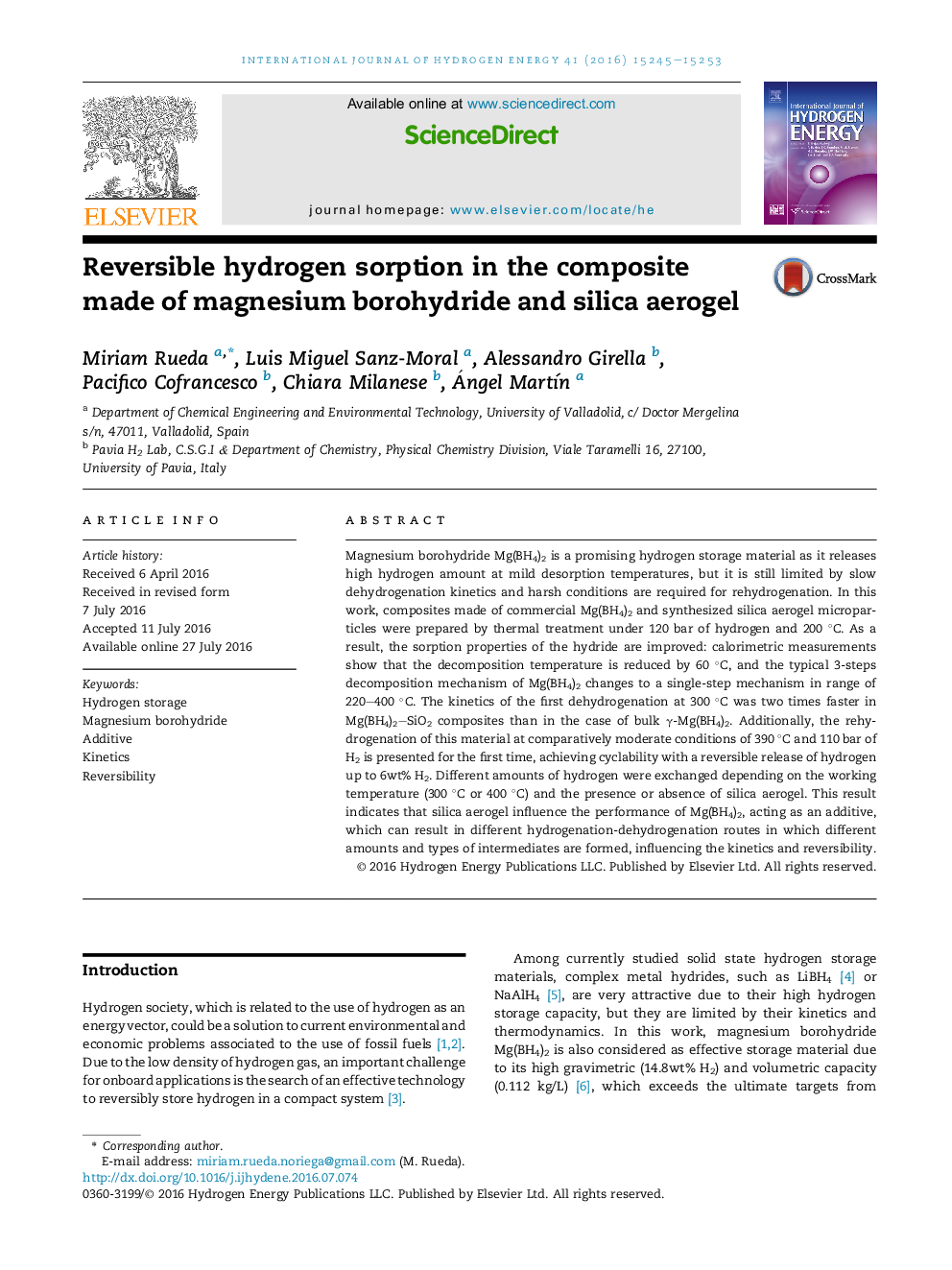| کد مقاله | کد نشریه | سال انتشار | مقاله انگلیسی | نسخه تمام متن |
|---|---|---|---|---|
| 1270403 | 1497391 | 2016 | 9 صفحه PDF | دانلود رایگان |

• A composite of Mg(BH4)2 and silica aerogel is prepared by thermal treatment.
• The onset decomposition temperature of Mg(BH4)2 is reduced 60 °C in the composite.
• The kinetics at 300 °C was two times faster in Mg(BH4)2/SiO2 composite.
• 3-step decomposition mechanism of Mg(BH4)2 changes to a single-step in the composite.
• First time Mg(BH4)2 is reversible at moderate conditions of pressure and temperature.
Magnesium borohydride Mg(BH4)2 is a promising hydrogen storage material as it releases high hydrogen amount at mild desorption temperatures, but it is still limited by slow dehydrogenation kinetics and harsh conditions are required for rehydrogenation. In this work, composites made of commercial Mg(BH4)2 and synthesized silica aerogel microparticles were prepared by thermal treatment under 120 bar of hydrogen and 200 °C. As a result, the sorption properties of the hydride are improved: calorimetric measurements show that the decomposition temperature is reduced by 60 °C, and the typical 3-steps decomposition mechanism of Mg(BH4)2 changes to a single-step mechanism in range of 220–400 °C. The kinetics of the first dehydrogenation at 300 °C was two times faster in Mg(BH4)2SiO2 composites than in the case of bulk γ-Mg(BH4)2. Additionally, the rehydrogenation of this material at comparatively moderate conditions of 390 °C and 110 bar of H2 is presented for the first time, achieving cyclability with a reversible release of hydrogen up to 6wt% H2. Different amounts of hydrogen were exchanged depending on the working temperature (300 °C or 400 °C) and the presence or absence of silica aerogel. This result indicates that silica aerogel influence the performance of Mg(BH4)2, acting as an additive, which can result in different hydrogenation-dehydrogenation routes in which different amounts and types of intermediates are formed, influencing the kinetics and reversibility.
Journal: International Journal of Hydrogen Energy - Volume 41, Issue 34, 14 September 2016, Pages 15245–15253